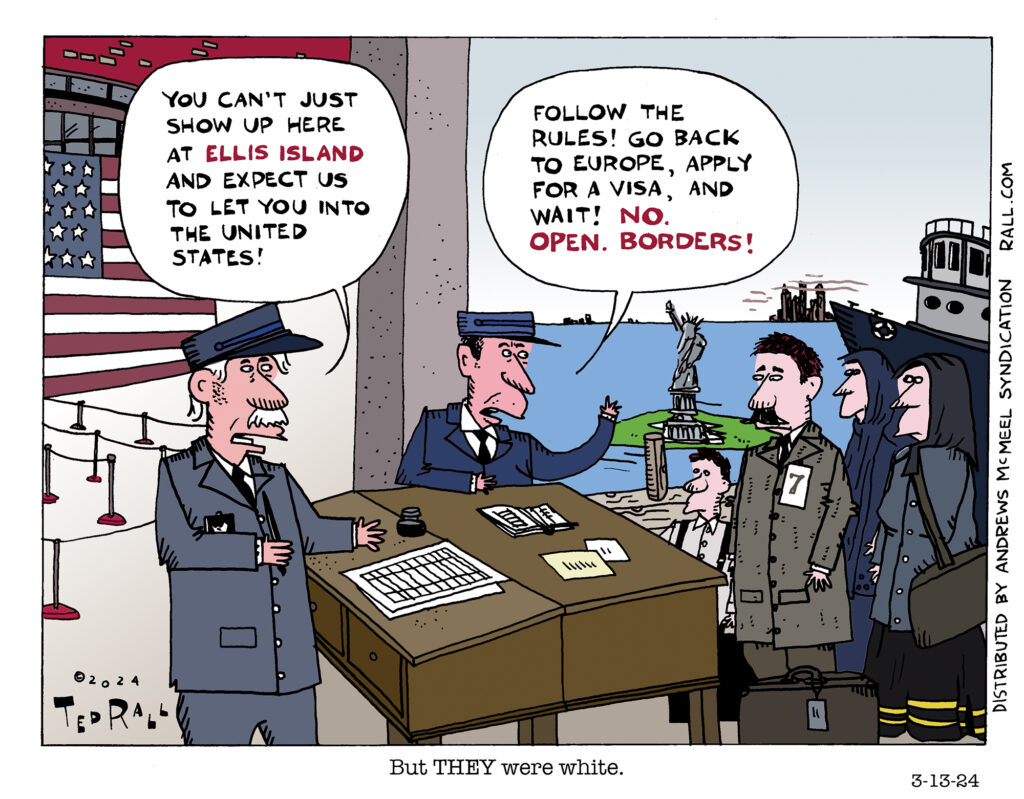Trump recently reconfirmed that he plans to carry out his campaign pledge to enforce mass deportations of many of the 10 million migrants with varying statuses who have entered the United States in recent years. Some overstayed their tourist visas. Some snuck across the border, the so-called “got-aways.” But the majority arrived legally and were admitted as asylum applicants—a status the new Administration plans to revoke. At the helm of this massive undertaking will be former ICE chief Tom Homan, a hardliner who promises no mercy in his plans, including the separation of children from their parents by force of arms.
ICE will probably take lead on detentions, but the military may be involved in the construction and administration of Trump’s gulag archipelago of concentration camps. Profiting, as always, will be the prison-industrial complex.
On the DMZ America podcast, Scott and Ted explore the legal and logistical challenges for Trump. History suggests that not enough Americans will care to make a difference. The co-hosts and friends also consider whether or not there will be substantial political implications: will Americans care enough about these new arrivals to protest and sabotage the program? Scott focuses on the economics. Decreased consumption, reduced tax collections and increased labor shortages could stymie the economy and add trillions to the deficit.



 On
On 